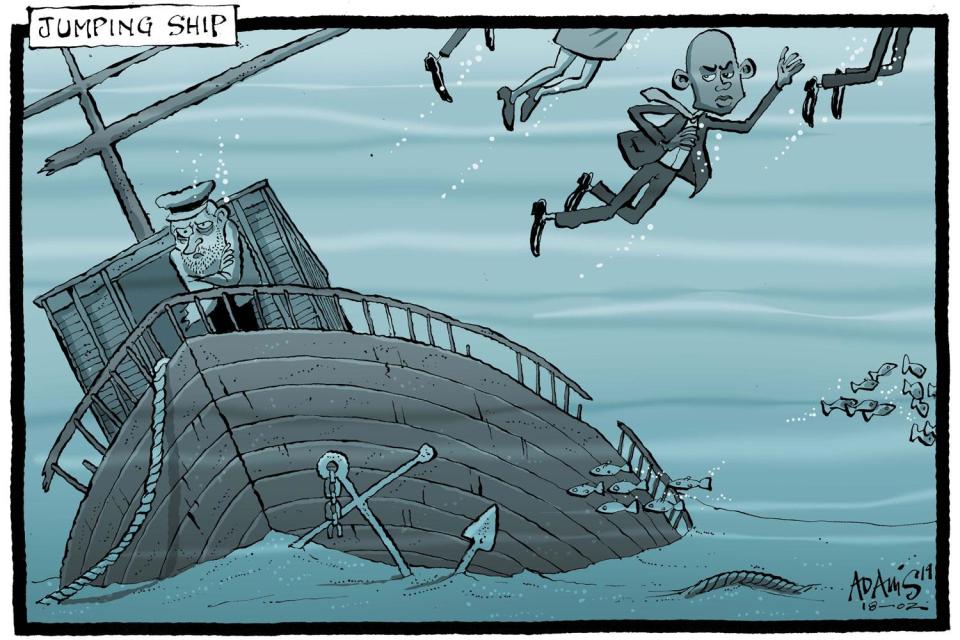Evening Standard comment: Split shows Labour is fast becoming a sect; New-look tickets to ride; Helping the homeless
For years, the caustic but admired Welsh radical Paul Flynn, whose death was announced today , was picked as a Labour candidate and won elections to sit as a Labour MP, even though he loathed many of the things Tony Blair and Gordon Brown did in government. Why? Because all three of them knew that political parties are not the same as exclusive sects.
Parties need the collective responsibility to sustain a broad coalition of views. Sects are narrow-minded and exclusive. Parties are representative and electable. Sects drive non-believers away.
When Labour was successful, it found a place for people such as Mr Flynn alongside the creators of New Labour.
So news this morning that seven moderate, able and committed MPs have walked out of the party should trouble anyone who wants to see another Labour government.
It’s not just the loss of talent that matters. It’s the fact that their departure is proof that Labour is well on the way to becoming a sect and is no longer acting as a serious party.
The MPs are sick of the refusal to do anything to confront anti-Semitism in the party. They are ashamed of a leader who claims to oppose Brexit but does nothing in Parliament to stop the slide towards a no-deal departure.
Their action is a cry of despair, as much as it is a call to arms. They are no longer able to stomach the narrow sectarianism of a Labour Party in the grip of people who do not agree that a political party must include a broad range of views and win the support of a broad range of voters.
The pledge that Labour MPs are now being asked to sign, to support Labour “under whatever leadership members elect”, is nothing more than a weapon to ban dissent — and they are right to defy it.
Where will this lead?
The gang of seven are not announcing, for now, a new movement but planning to sit as independents, where they will join other former Labour MPs who have already left. They are not yet forming an alliance with like-minded Liberal Democrats or unhappy, moderate Conservatives — much as some voters might want that.
By breaking ranks they are being brave and honest, refusing to pretend any longer that Labour, under Jeremy Corbyn, stands for progress.
It is a painful choice to have to make. But he has driven them to it.

New-look tickets to ride
Rail fares are mess. The system is expensive, confusing, outdated, inflexible and unfair.
Get a return from London to Manchester and you can pay £48 or £350 for the same standard-class seat, depending on when you book and when you travel.
If you work at home one or two days a week, you still need to buy a costly annual season pass covering every day, paying up front. Lots of people don’t bother trying the train because they think they will be ripped off.
So two cheers for the rail industry group, the RDG, which has published big and sensible ideas for reform today.
In particular, it says people should be charged simply for single journeys — as they are on the Tube — allowing them to get the best rate for each trip.
There will be less of a cliff-edge between peak and off-peak tickets and bargains won’t only be available to those who can book far in advance.
The catch? Some people will pay more, it’s not clear how annual rises will be avoided and these are only ideas — it’s up to the Government to accept them.
But passengers deserve better — and at last the industry is trying to help.
Helping the homeless
London is a rich city, which only makes it more distressing to see growing numbers of people sleeping rough even on the coldest winter nights.
We should help, not look away. But what’s the answer?
Today the Mayor, Sadiq Khan, has announced an extra £7 million to fund shelters when temperatures drop below zero , and an all-year round rapid response team.
It won’t solve the problem — but it’s a start.

 Yahoo News
Yahoo News 
